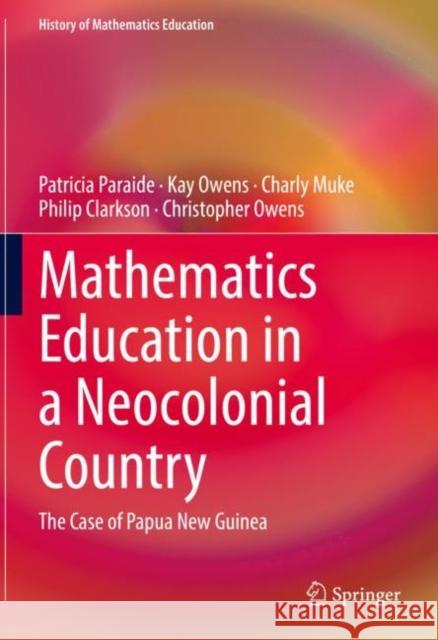Mathematics Education in a Neocolonial Country: The Case of Papua New Guinea » książka
Mathematics Education in a Neocolonial Country: The Case of Papua New Guinea
ISBN-13: 9783030909932 / Angielski / Twarda / 2023 / 494 str.
Mathematics Education in a Neocolonial Country: The Case of Papua New Guinea
ISBN-13: 9783030909932 / Angielski / Twarda / 2023 / 494 str.
(netto: 499,55 VAT: 5%)
Najniższa cena z 30 dni: 501,19
ok. 22 dni roboczych.
Darmowa dostawa!
Most education research is undertaken in western developed countries. While some research from developing countries does make it into research journals from time to time, but these articles only emphasize the rarity of research in developing countries. The proposed book is unique in that it will cover education in Papua New Guinea over the millennia. Papua New Guinea’s multicultural society with relatively recent contact with Europe and the Middle East provides a cameo of the development of education in a country with both a colonial history and a coup-less transition to independence. Discussion will focus on specific areas of mathematics education that have been impacted by policies, research, circumstances and other influences, with particular emphasis on pressures on education in the last one and half centuries. This volume will be one of the few records of this kind in the education research literature as an in-depth record and critique of how school mathematics has been grown in Papua New Guinea from the late 1800s, and should be a useful addition to graduate programs mathematics education courses, history of mathematics, as well as the interdisciplinary fields of cross cultural studies, scholarship focusing on globalization and post / decolonialism, linguistics, educational administration and policy, technology education, teacher education, and gender studies.
Most education research is undertaken in western developed countries. While some research from developing countries does make it into research journals from time to time, but these articles only emphasize the rarity of research in developing countries. The proposed book is unique in that it will cover education in Papua New Guinea over the millennia. Papua New Guinea’s multicultural society with relatively recent contact with Europe and the Middle East provides a cameo of the development of education in a country with both a colonial history and a coup-less transition to independence. Discussion will focus on specific areas of mathematics education that have been impacted by policies, research, circumstances and other influences, with particular emphasis on pressures on education in the last one and half centuries. This volume will be one of the few records of this kind in the education research literature as an in-depth record and critique of how school mathematics has been grown in Papua New Guinea from the late 1800s, and should be a useful addition to graduate programs mathematics education courses, history of mathematics, as well as the interdisciplinary fields of cross cultural studies, scholarship focusing on globalization and post / decolonialism, linguistics, educational administration and policy, technology education, teacher education, and gender studies.











